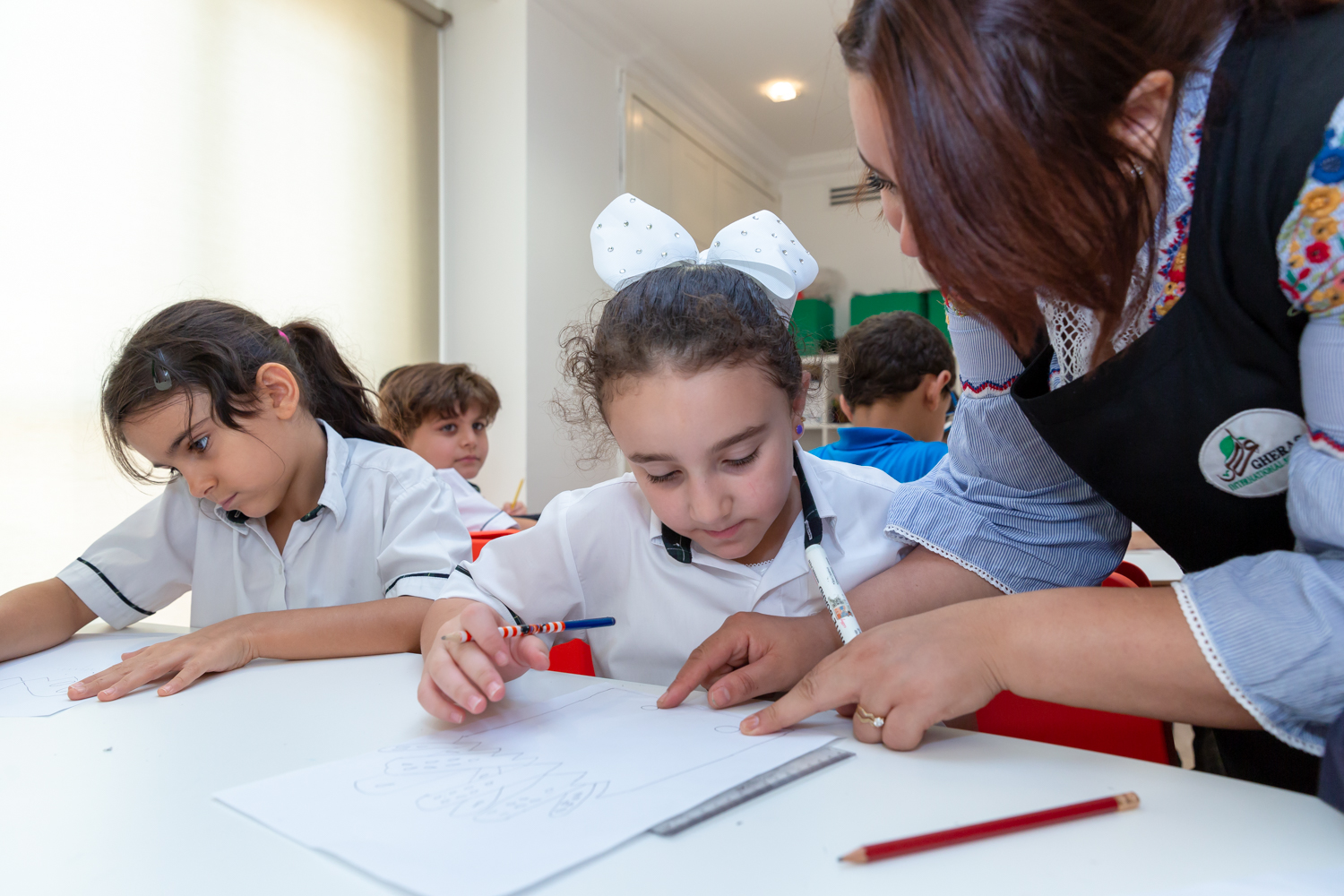WHAT TO EXPECT IN EYFS
GIS teachers ensure that all children feel included, secure, and valued and build positive relationships with parents to work effectively with them and their children. As a result, all our children are unique and are supported on their learning journeys. Our lessons are Child-centred and play-based learning to increase children's engagement, always focussing on the idea that higher levels of engagement often lead to higher levels of progress.

At GIS our youngest students are empowered by following the statutes:
- Because younger children learn primarily through imitation and doing, we provide lessons rich in multisensory, experiential exercises that spark learning through action, imagination, and fun.
- Have opportunities for children to engage in activities planned by the teachers and those they plan or initiate themselves.
- Children do not make a distinction between "play" and "work", and neither do
- Teachers observe and respond appropriately to children, informed by a knowledge of how children develop and learn and a clear understanding of possible next steps in their development and learning.
- For children to have rich and stimulating experiences, the learning environment is planned and well organized using active learning and stationery worktables.
- Provide the structure for teaching within which children explore, experiment, plan and make decisions for themselves, thus enabling them to learn, develop and make good progress.

For each area of development and supportive subjects
This area underpins children's wellbeing and attainment in all other areas of their learning. It helps them to develop social knowledge and friendships, regulate their emotional responses and respond to the needs of others, and develop self-esteem and confidence.
Children's personal, social and emotional development is crucial for children to lead healthy and happy lives and is fundamental to their cognitive development. Underpinning their personal development are the essential attachments that shape their social world. Strong, warm and supportive relationships with adults enable children to learn how to understand their feelings and those of others. Children should be supported to manage emotions, develop a positive sense of self, set simple goals, have confidence in their abilities, persist and wait for what they want and direct attention as necessary. Through adult modelling and guidance, they learn how to look after their bodies, including healthy eating, and manage personal needs independently. Through supported interaction with other children, they know how to make good friendships, cooperate and resolve conflicts peaceably. These attributes provide a secure platform for children to achieve at school and later in life.

